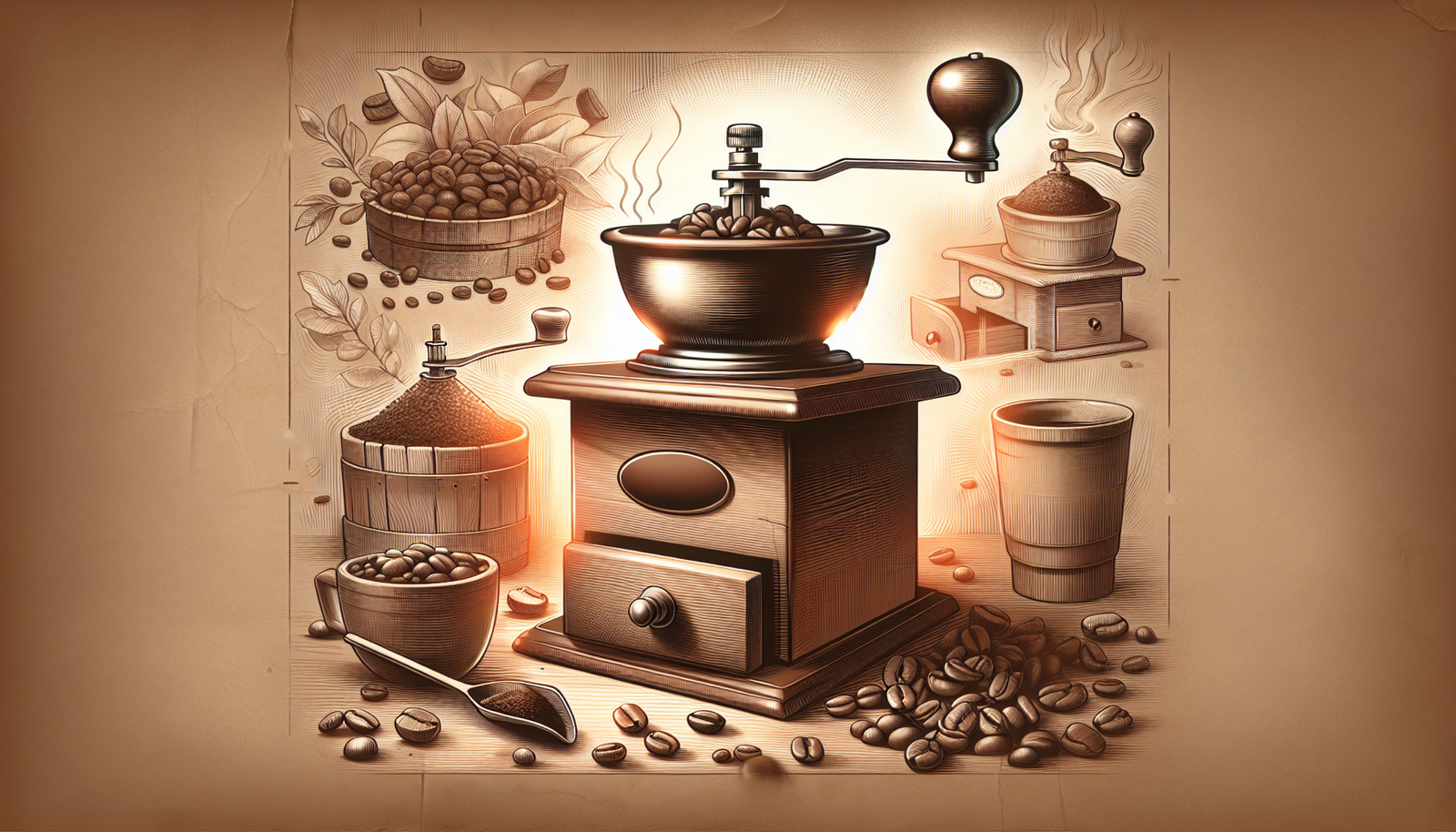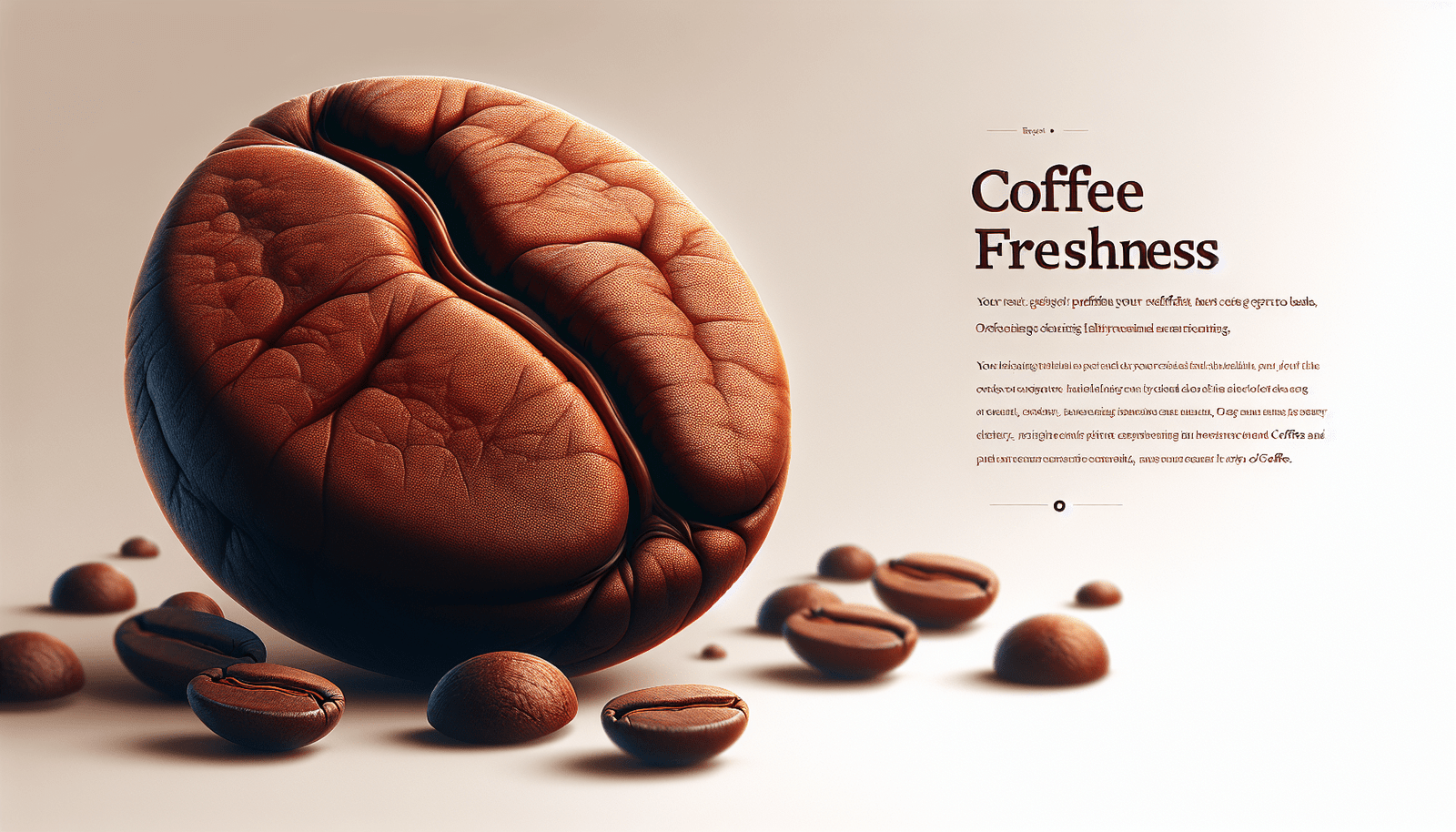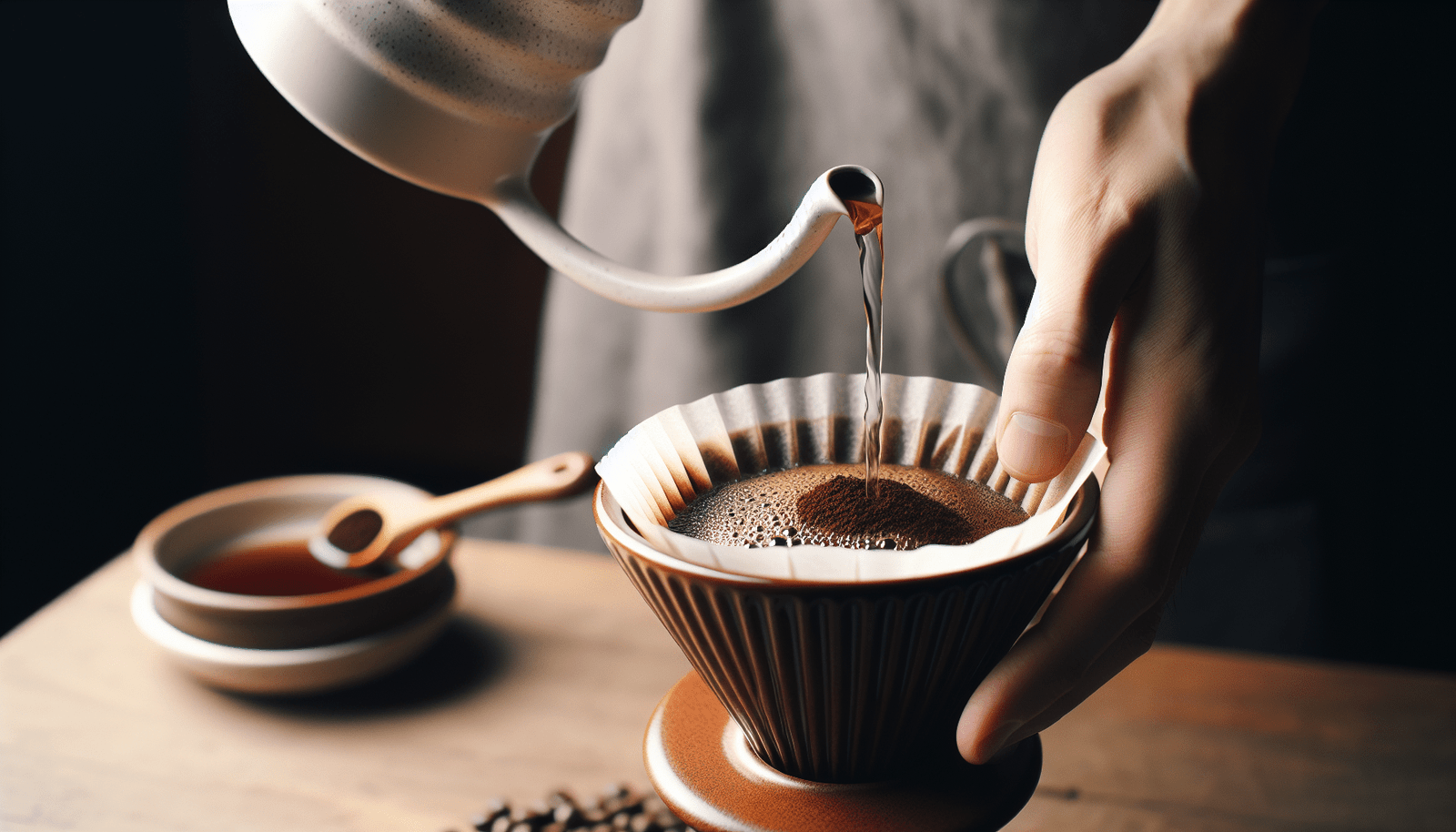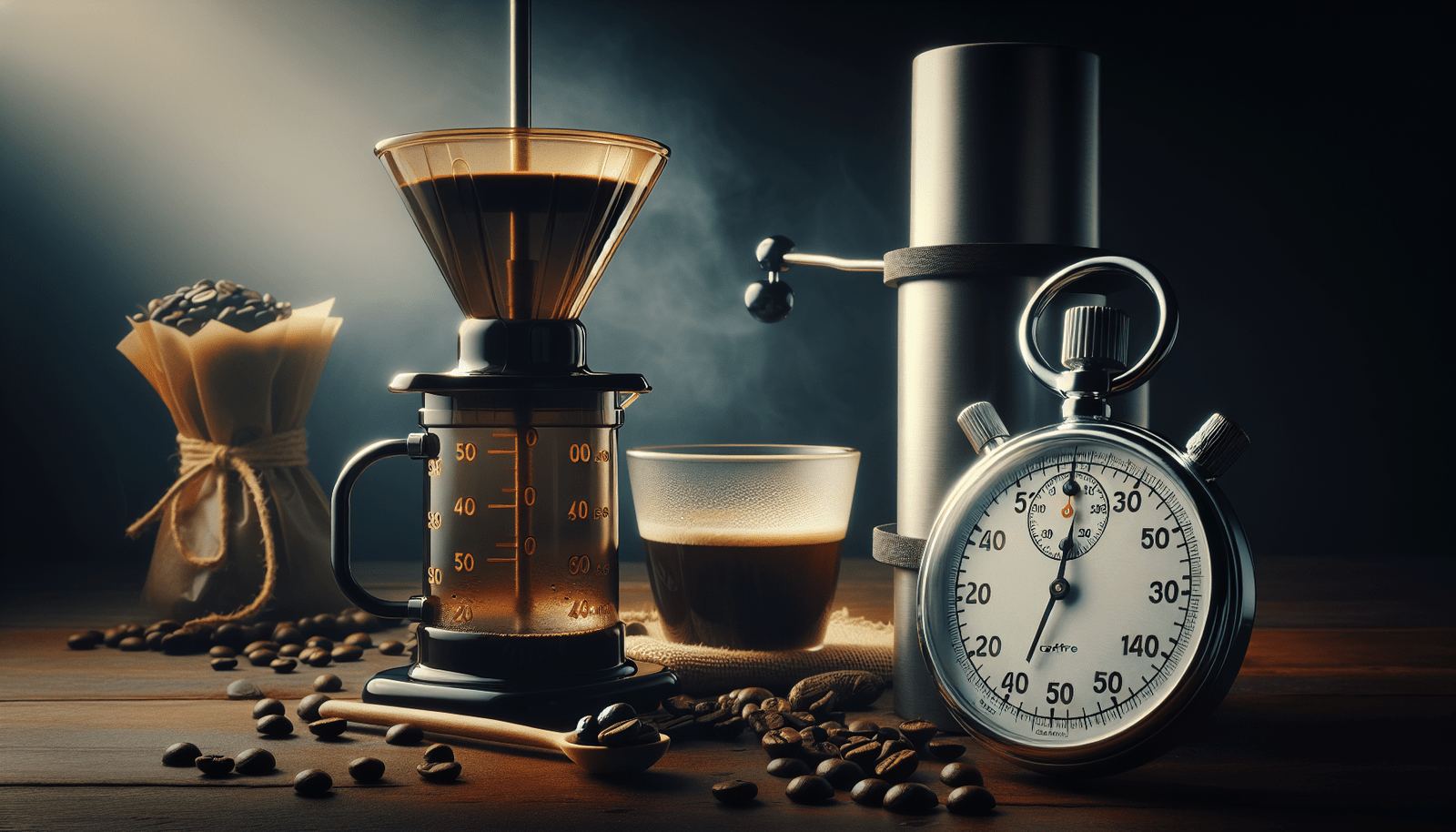If coffee is an essential part of your morning routine, you may have found yourself standing in the coffee aisle, deliberating between pre-ground coffee or grinding your own. The convenience of pre-ground coffee is tempting, but is it sacrificing flavor? On the other hand, grinding your beans offers the opportunity to personalize your brew, but is it worth the extra effort? In this article, we will explore the pros and cons of both options, helping you make an informed decision that will result in the perfect cup of coffee to kickstart your day.
The Importance of Freshly Ground Coffee
When it comes to enjoying a quality cup of coffee, freshness is key. Freshly ground coffee offers a superior aroma and flavor profile compared to pre-ground coffee. The process of grinding coffee beans releases aromatic oils and compounds that contribute to the sensory experience of coffee. As soon as coffee beans are ground, they begin to oxidize, leading to a loss in flavor and intensity. To fully appreciate the nuances and complexity of coffee, it is essential to grind your beans just before brewing.
The Aroma and Flavor Profile
The aroma of freshly ground coffee is truly captivating. As you open a bag of whole beans and take in the distinct smell, you are immediately transported to a world of rich and enticing flavors. These aromatics are a result of volatile compounds that are released during the grinding process, and they dissipate quickly once exposed to air. By grinding your own coffee, you can fully experience the delightful fragrances that make each coffee bean unique.
Not only does freshly ground coffee offer an enticing aroma, but it also enhances the flavor profile. When coffee beans are ground, the increased surface area allows for more efficient extraction during brewing. This leads to a more flavorful and robust cup of coffee. The oils and compounds that contribute to the taste of coffee are better preserved when the beans are ground just before use. As a result, freshly ground coffee provides an unparalleled flavor experience that cannot be matched by pre-ground coffee.
How Grinding Impacts Freshness
The moment coffee beans are ground, they begin to deteriorate. This is because grinding exposes a larger surface area, which accelerates the oxidation process. Oxygen and moisture in the air can quickly penetrate the ground coffee, leading to staleness and a loss of flavor. Pre-ground coffee, although convenient, has already undergone this process and may have lost some of its freshness and aroma.
On the other hand, grinding your own coffee ensures maximum freshness. By waiting until just before brewing to grind the beans, you are preserving the full potential of the flavor and aroma. The result is a cup of coffee that is vibrant, flavorful, and enjoyable to the very last sip.
The Role of Grind Size in Coffee Extraction
Another crucial aspect to consider when grinding your own coffee is the size of the grind. Different brewing methods require specific grind sizes to achieve optimal extraction. If the grind size is too coarse or too fine, it can negatively impact the flavor and balance of your coffee.
Coarser grinds are typically used for brewing methods such as French press or cold brew. These methods rely on a longer steeping time to extract the flavors, and a coarser grind allows for better extraction without over-extracting and resulting in bitterness.
Medium grinds are suitable for drip coffee makers or pour-over methods. The balanced extraction achieved with medium grind size produces a smooth and well-rounded cup of coffee.
Finally, finer grinds are necessary for espresso machines to ensure proper extraction within a shorter period of time. The fine grind allows for the high pressure and contact time required for espresso brewing.
By grinding your own coffee, you have full control over the size of the grind, allowing you to tailor it to your preferred brewing method and taste preferences.
Advantages of Pre-ground Coffee
While freshly ground coffee offers undeniable benefits, there are also advantages to using pre-ground coffee. It is essential to consider these aspects to determine the best option for your lifestyle and coffee needs.
Convenience and Time-saving
One of the significant advantages of pre-ground coffee is the convenience it offers. Pre-ground coffee eliminates the need for grinding equipment, saving you time and effort in your morning routine. All you need to do is measure the desired amount of coffee, and you’re ready to brew. This convenience is particularly appealing for busy individuals or those who value efficiency in their daily lives.
Consistency in Grind Size
Another benefit of pre-ground coffee is the consistency in grind size. Coffee manufacturers use specialized equipment to ensure a uniform grind, which results in a more consistent extraction during brewing. This consistency can be especially advantageous for individuals who prefer a standardized taste profile in their coffee. With pre-ground coffee, you can expect a reliable and familiar flavor with each brew.
Less Equipment Required
Not everyone has access to a coffee grinder or is willing to invest in one. Grinding your own coffee requires an additional piece of equipment and adds complexity to the brewing process. Pre-ground coffee eliminates the need for a grinder, making it an attractive option for those who prioritize simplicity or have limited countertop space.
Drawbacks of Pre-ground Coffee
While the convenience of pre-ground coffee is appealing, there are some drawbacks to consider.
Loss of Aroma and Flavor
Perhaps the most notable drawback of pre-ground coffee is the loss of aroma and flavor. As mentioned earlier, the grinding process releases the volatile aromatic compounds that contribute to the sensory experience of coffee. When coffee beans are ground in advance, these compounds dissipate more quickly, resulting in a less vibrant and aromatic cup of coffee. If you value the full sensory experience of coffee, grinding your own beans is the way to go.
Oxidation and Staleness
Pre-ground coffee is more susceptible to oxidation and staleness. Once coffee beans are ground, they are exposed to oxygen, moisture, and light, which accelerate the degradation process. The longer the ground coffee sits, the more the flavors and aromas diminish. This can be particularly noticeable in a cup of pre-ground coffee that has been sitting on store shelves for an extended period. If you prioritize freshness and the best possible taste, grinding your own coffee is the optimal choice.
Limited Control over Grind Size
When purchasing pre-ground coffee, you have no control over the grind size. Different brewing methods require specific grind sizes to achieve optimal extraction. If you prefer to experiment with different brewing methods or have a particular preference for the grind size, using pre-ground coffee may not provide the customization options you desire. Grinding your own coffee gives you the freedom to adjust the grind size based on your needs and preferences.
Benefits of Grinding Your Own Coffee
While there are advantages to using pre-ground coffee, the benefits of grinding your own coffee are significant, especially for coffee enthusiasts seeking the best possible flavor experience.
Optimal Freshness and Flavor Retention
Grinding your own coffee ensures optimal freshness and flavor retention. As soon as coffee beans are ground, the oxidation process begins, decreasing the quality of the coffee. By waiting until just before brewing to grind the beans, you can preserve the natural oils, aromatic compounds, and flavors that make coffee so enjoyable. The result is a cup of coffee that is bursting with freshness and flavor, providing a truly exceptional taste experience.
Customizable Grind Size
When you grind your own coffee, you have full control over the grind size. As mentioned earlier, different brewing methods require specific grind sizes for optimal extraction. By experimenting with and customizing the grind size, you can fine-tune the taste and balance of your coffee. This level of control allows you to tailor each cup to your personal preferences, ensuring a consistently satisfying and enjoyable coffee experience.
Unlocking the Full Potential of Specialty Coffee
In recent years, the specialty coffee industry has seen tremendous growth and innovation. Specialty coffees are often carefully sourced and meticulously roasted to highlight their unique flavors and characteristics. To fully appreciate the complexity and nuances of these coffees, grinding them fresh is essential. By grinding your own coffee, you can unlock the full potential of specialty beans and engage in a truly immersive coffee experience.
Different Coffee Grinders
When considering grinding your own coffee, you have several options when it comes to the type of grinder to use. Understanding the differences between these grinders can help you make an informed decision based on your preferences and needs.
Blade Grinders
Blade grinders are typically the most common and affordable option on the market. They consist of a spinning blade that chops the coffee beans into smaller pieces. While blade grinders are capable of grinding coffee, they tend to produce an inconsistent grind size. This inconsistency can lead to uneven extraction and result in an imbalanced flavor profile. However, blade grinders are suitable for individuals on a budget or those who prioritize simplicity and occasional home use.
Burr Grinders
Burr grinders are considered the gold standard for coffee grinding. They feature two abrasive surfaces, or burrs, that allow for a more precise and uniform grind. Burr grinders offer greater control over the size of the grind, ensuring optimal extraction and flavor. They are available in both manual and electric options, making them suitable for a wide range of coffee enthusiasts.
Manual versus Electric Grinders
Choosing between a manual or electric grinder depends on your personal preferences and lifestyle. Manual grinders require more effort and time to operate, as they rely on hand-powered mechanisms. However, they offer a level of portability and simplicity that can be appealing for travelers or coffee enthusiasts who prefer a more hands-on approach. Electric grinders, on the other hand, provide convenience and efficiency with the push of a button. They are ideal for daily use and for those who value speed and automation in their coffee routine.
Choosing the Right Grinder
When it comes to choosing the right grinder, there are several factors to consider to ensure it meets your specific needs and preferences.
Considerations for Budget
Your budget will inevitably play a role in determining the grinder that is right for you. Blade grinders are often the most affordable option, while burr grinders, especially electric ones, can be more expensive. It’s important to find a balance between your budget and the level of grind consistency and control you desire. Investing in a high-quality grinder that meets your needs will greatly enhance your coffee experience.
Grind Consistency and Control
If grind consistency and control are essential to you, opting for a burr grinder is highly recommended. Burr grinders offer a more precise and uniform grind, which leads to better extraction and a more balanced cup of coffee. Pay attention to the capabilities of the grinder you are considering, as some models may offer more grind size options and finer adjustments than others. Ensure that the grinder you choose aligns with the brewing methods and taste preferences you have in mind.
Space and Cleaning Requirements
Consider the available space in your kitchen and the cleaning requirements of the grinder. Electric grinders tend to be larger and may require more counter space, while manual grinders are generally more compact and portable. Additionally, be mindful of the cleaning process involved with each grinder. Some grinders can be more challenging to clean due to complex mechanisms or additional parts. Opt for a grinder that fits seamlessly into your kitchen space and aligns with your cleaning preferences.
Grind Size and Brewing Methods
To achieve the best possible flavor and extraction, it’s crucial to match the grind size to the brewing method you will be using. Here are some general guidelines for grind sizes based on popular brewing methods:
Coarse Grind for French Press
French press brewing requires a coarse grind. The large particles allow for a longer steeping time without over-extraction. This results in a full-bodied cup of coffee with robust flavors and a pleasant mouthfeel.
Medium Grind for Drip Coffee
Drip coffee makers and pour-over methods call for a medium grind size. This grind allows for a balanced extraction and produces a smooth and well-rounded cup of coffee. The water flow rate in these methods is typically moderate, and a medium grind ensures optimal extraction within the given time frame.
Fine Grind for Espresso
Espresso machines rely on high-pressure brewing to extract the bold flavors and richness of coffee. To achieve this, a fine grind size is necessary. The fine particles allow for a larger surface area in contact with water, facilitating the extraction process. The result is a concentrated shot of espresso with a rich crema and intense flavor.
By adjusting the grind size based on your chosen brewing method, you can optimize the extraction process and achieve the desired taste characteristics in your coffee.
Storage and Shelf Life
Even with freshly ground coffee, proper storage is key to maintaining freshness and flavor. Both pre-ground and freshly ground coffee can benefit from careful storage techniques.
Storing Pre-Ground Coffee
If you opt for pre-ground coffee, ensure you store it properly to minimize the oxidation and loss of flavor. To do this, transfer the coffee to an airtight container as soon as possible after opening the packaging. Place the container in a cool and dark location, away from direct sunlight and heat sources. It’s best to use the coffee within two weeks of opening to ensure optimal freshness. Avoid storing pre-ground coffee in the freezer, as this can introduce moisture and negatively affect the flavor.
Minimizing Exposure to Air and Moisture
When grinding your own coffee, it is crucial to minimize exposure to air and moisture. Invest in an airtight container specifically designed for coffee storage. Immediately transfer the coffee to the container to prevent contact with oxygen, which can lead to oxidation and staleness. Additionally, store the container in a cool, dry, and dark place to protect the coffee from moisture and light. By taking these precautions, you can prolong the shelf life and preserve the quality of your ground coffee.
Determining Coffee Freshness
To ensure you’re consistently brewing the freshest coffee possible, it’s important to assess the freshness of your beans or ground coffee. Most coffee packages have a “best by” date, but this does not necessarily indicate the optimal freshness of the coffee. Coffee that has been freshly ground will generally have a more vibrant aroma and produce a fuller-bodied cup. Consider taste and scent as indicators of freshness, and aim to use your ground coffee within a week of grinding for the best flavor experience.
Experimenting with Pre-ground and Freshly Ground Coffee
If you’re unsure whether grinding your own coffee is worth the extra effort, consider conducting a taste comparison between pre-ground and freshly ground coffee. Brew the same coffee using both methods and pay attention to the differences in flavor and aroma.
Taste Comparison of the Same Coffee
Grind a portion of your whole coffee beans and brew a cup using your preferred method. Take note of the flavors, aromas, and overall taste experience. Then, using the same brewing method, brew a cup of coffee using pre-ground coffee from the same batch. Compare the two cups side by side, paying attention to any variations in flavor, aroma, and balance.
Notable Differences in Flavor and Aroma
You may find that the freshly ground coffee offers a more vibrant aroma and a fuller, more complex flavor profile. The pre-ground coffee, while still enjoyable, may showcase a slightly muted aroma and less pronounced flavors. These differences can be attributed to the degradation that occurs in pre-ground coffee over time.
Personal Preference and Brewing Methods
Keep in mind that personal preference and brewing methods play a significant role in determining your coffee experience. One person may prefer the convenience and consistency of pre-ground coffee, while another may prioritize the freshness and customization options of grinding their own beans. Consider the factors that matter most to you, such as taste, aroma, convenience, and control, when making a decision about which method to use.
Conclusion
In the debate between pre-ground coffee and grinding your own, there is no definitive right or wrong answer. It ultimately comes down to personal preference and your individual coffee needs. If convenience and time-saving are high on your priority list, pre-ground coffee may be the way to go. However, if you crave the freshest and most flavorful cup of coffee possible, investing in a grinder and grinding your own beans is the recommended option.
By grinding your own coffee, you can fully experience the tantalizing aromas, flavors, and complexities that make coffee so special. Customizable grind sizes allow you to unlock the full potential of different brewing methods and explore the wide world of coffee. Whether you choose a blade or burr grinder, manual or electric, the act of grinding your own coffee adds an extra level of enjoyment and engagement to your coffee journey.
Consider your budget, desired grind consistency, and available space when selecting a grinder. Pay attention to proper storage techniques to prolong the freshness of your coffee, regardless of whether it is pre-ground or freshly ground. Finally, don’t be afraid to experiment and compare the taste and aroma of pre-ground and freshly ground coffee to determine what suits your palate best.
In the end, the importance of freshly ground coffee lies in the pleasure it brings to your daily routine. Balance convenience and quality, and make choices that align with your unique coffee preferences. Whether you grind your own coffee or opt for pre-ground, savor each sip and embrace the journey that coffee can take you on.




